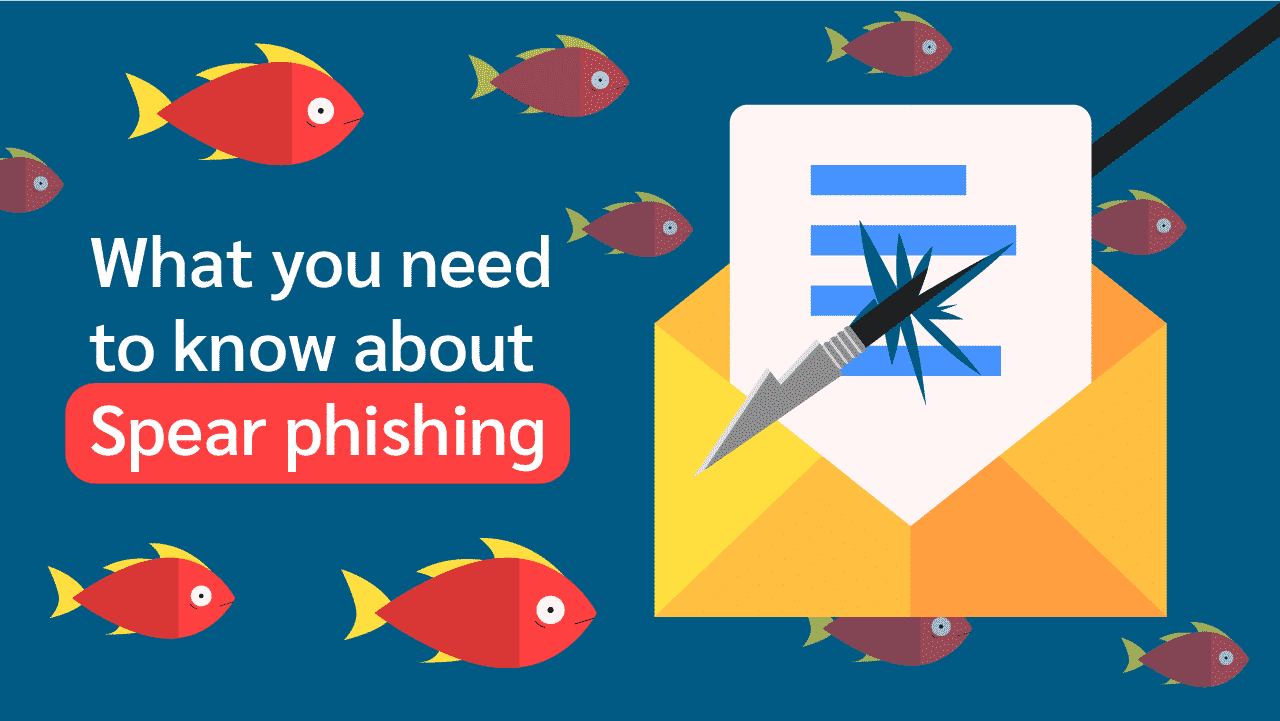How to Identify and Avoid Spear Phishing Attacks
As long as you use the internet, someone is looking to steal your private information at every point. Companies and organizations that use the internet and computer systems are not left out.
Cybercriminals and hackers are getting emboldened and evolving sophisticated systems to steal as much as they can from unsuspecting folks. To stay safe, you need to learn about the tricks they employ and how to avoid them. This article looks at one scamming pattern bad actors employ.
What is Spear Phishing?
Spear Phishing refers to certain kinds of targeted attacks where victims are tricked into giving up crucial private information. The most common is email spear phishing. Here, the perpetrator provides seemingly genuine information intended to throw the victim off.
For instance, they could add information that appears to be from your bank. The intention usually is to get you to let down your guard and provide the details that would then be requested, such as log-in credentials, email passwords, account details, etc.
Spear phishing can also occur where you download ransomware into your device. Here, a clone of a familiar app or software will be forwarded to you. Once you download it, the ransomware takes over your device, and you’ll have to pay to recover access.
Here are some terms associated with spear phishing:
Phishing
Phishing is the generic, broader form of spear phishing. Here, the perpetrator “casts their net” with the hope of snaring as many victims as possible. Thus, in this form of attack, a victim may not see their names or specific details. They could just find forms which they have to fill. Upon doing so, they give away crucial information that compromises them.
Whaling
Whaling is a form of spear phishing attack that is targeted at high-ranking executives. The perpetrator impersonates a superior, hoping to use the influence of such a person to force the victim to give away certain information.
Surprisingly, executives, more than low-ranking employees, fall prey to scams like this. This may be connected to the fact that their positions come with a lot of pressure. More so, they usually have crucial company information within their knowledge. Thus, exploiting the vulnerabilities provided by intense work pressure works quite well for the perpetrator.
Signs of a Possible Spear Phishing Attack
Research shows that most spear phishing attacks are successful because of victims’ carelessness. The attacks usually follow a pattern. Hence, if you pay attention, you can suspect and maybe prevent the attacks from happening. Here are the common signs of a possible spear phishing attack.
1. Incorrect Email Information
A scammer could send you an email from an email address similar to the one you are used to. Without being careful, you may fail to note differences, such as where the letter “o” is swapped for the number “0”.
2. Sense of Urgency
Another clear indicator of a possible spear phishing attack is an undue sense of urgency. Emails here make you feel like you need to act (click a link, input your password, etc.) immediately. This is because criminals realize that when you are in a hurry, you hardly notice things.
3. Wrong Language
This is very important for employees. A scammer looking to employ targeted phishing attacks may not be well-versed in the lingo of the company/organization. Thus, while they may have some information about the firm, the language could be an instant giveaway. When you feel uncomfortable about the language in an email, that should be an instant red flag.
4. Emotional Appeal
Sometimes, instead of trying to instill a sense of urgency, the scammer attempts to appeal to your emotions. If you feel unduly pressured to click a charitable organization’s link, you should be wary.
How To Prevent Spear Phishing Attacks
Here are some steps you can take to protect yourself and your organization from spear phishing attacks:
Guard Passwords
First thing, never be in a hurry to give out crucial information such as email passwords online.
Use Malware Blockers and Antivirus Software
There is software designed to detect and prevent the infestation of malware. You can find both paid and free ones, although paid ones give you the best quality of service. Invest some money into one (or a few) to stay safe.
Conduct Ongoing Employee Security Training
In the vast majority of cases, employees fall prey to spear phishing attacks because of ignorance. To take care of this, the organization can conduct periodic employee security training. This gauges the level of security awareness employees possess and suggests ways to improve.
Update Software Systems
The older your tech is, the more susceptible you are to attacks. Thus, organizations and individuals have to be prompt with updating their systems when they get outdated. The benefit here is that an updated software usually comes fitted with improved security systems.
Conclusion
A spear phishing attack is a terrible experience both for individuals and organizations. This article tells you all you need to know and further provides steps on how to stay safe.
